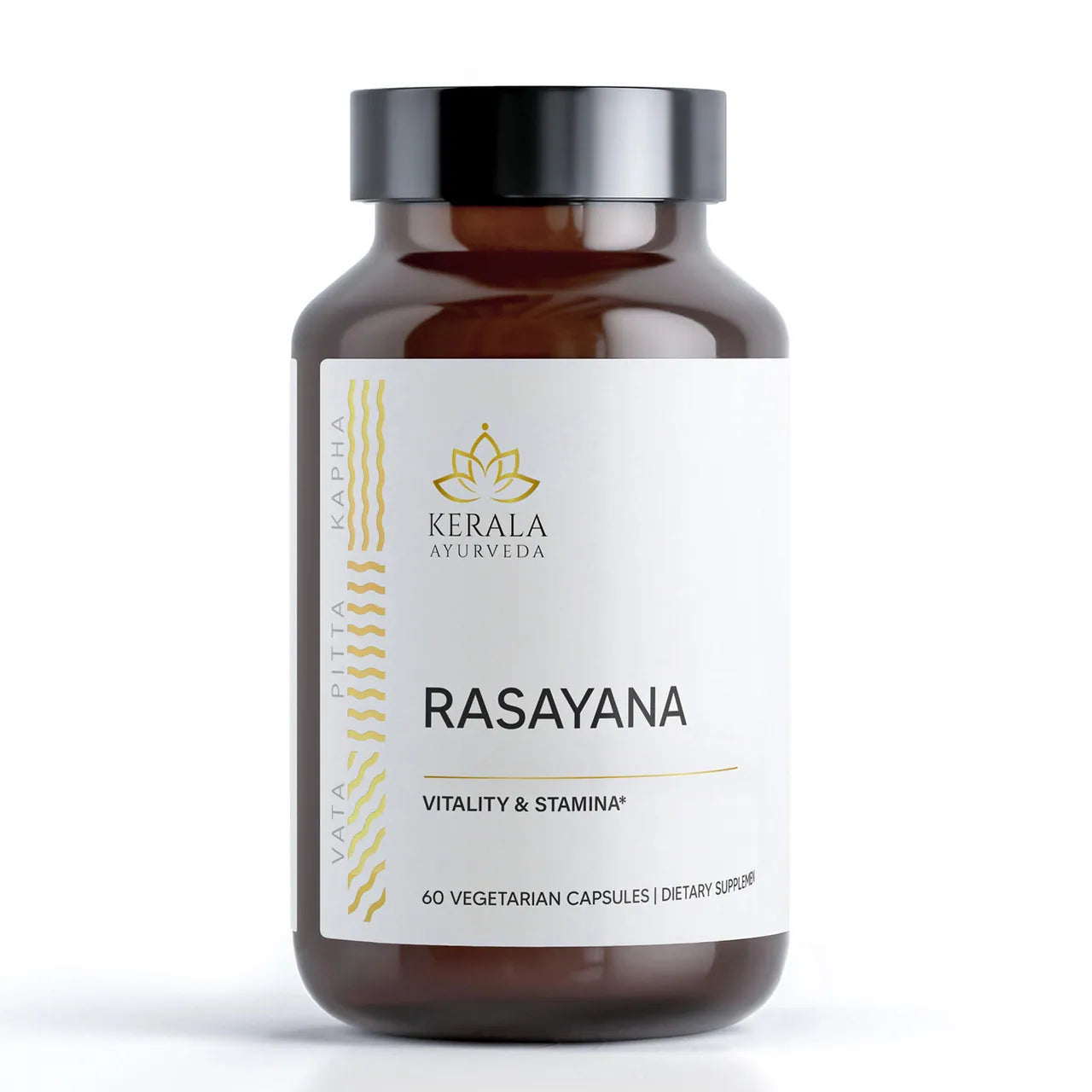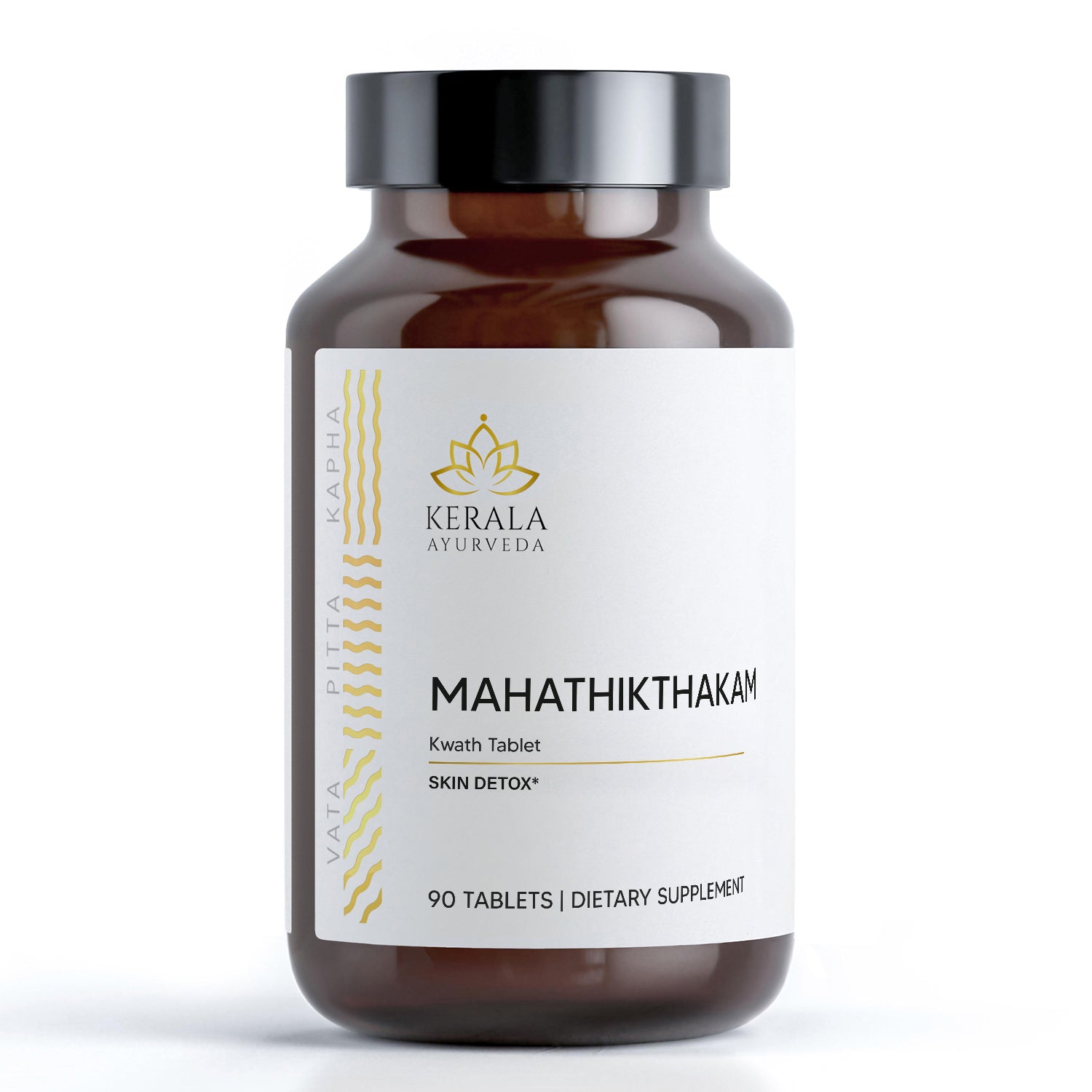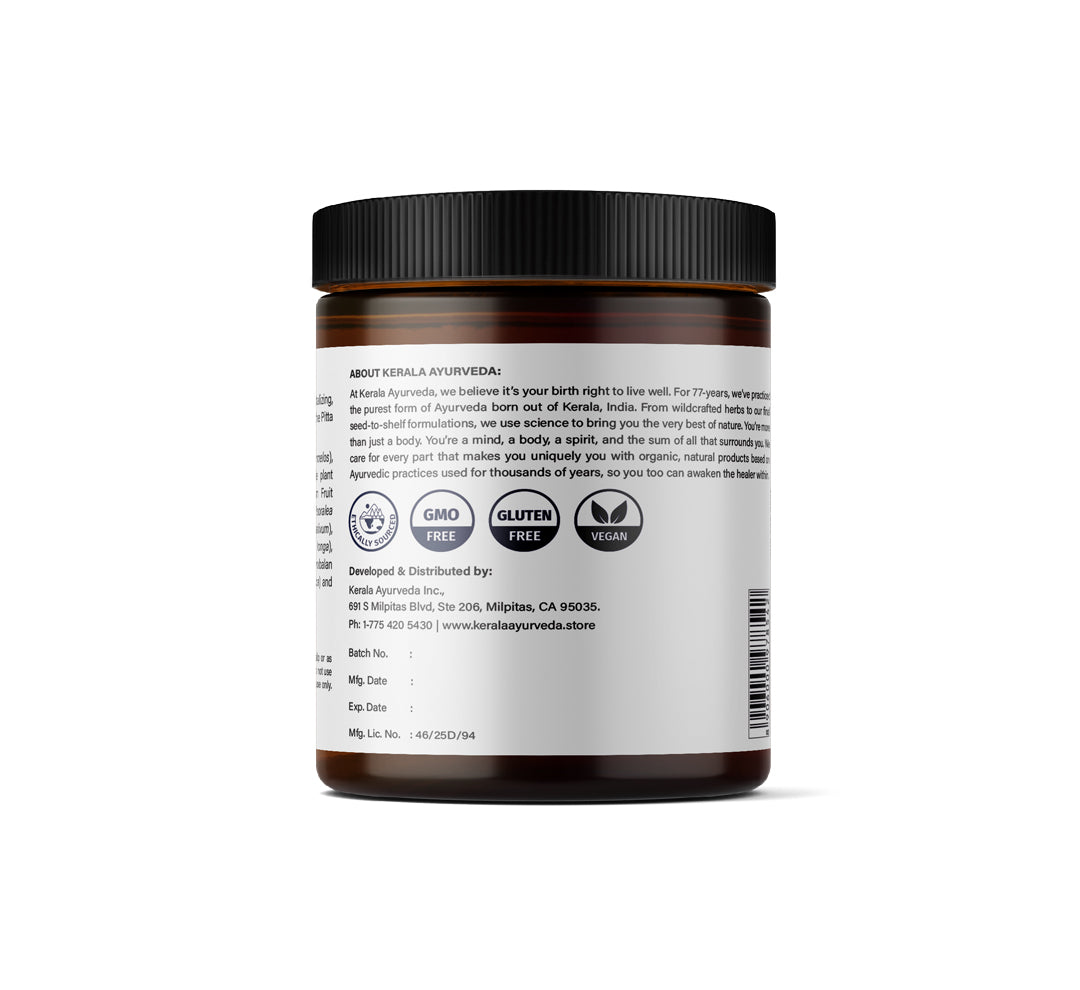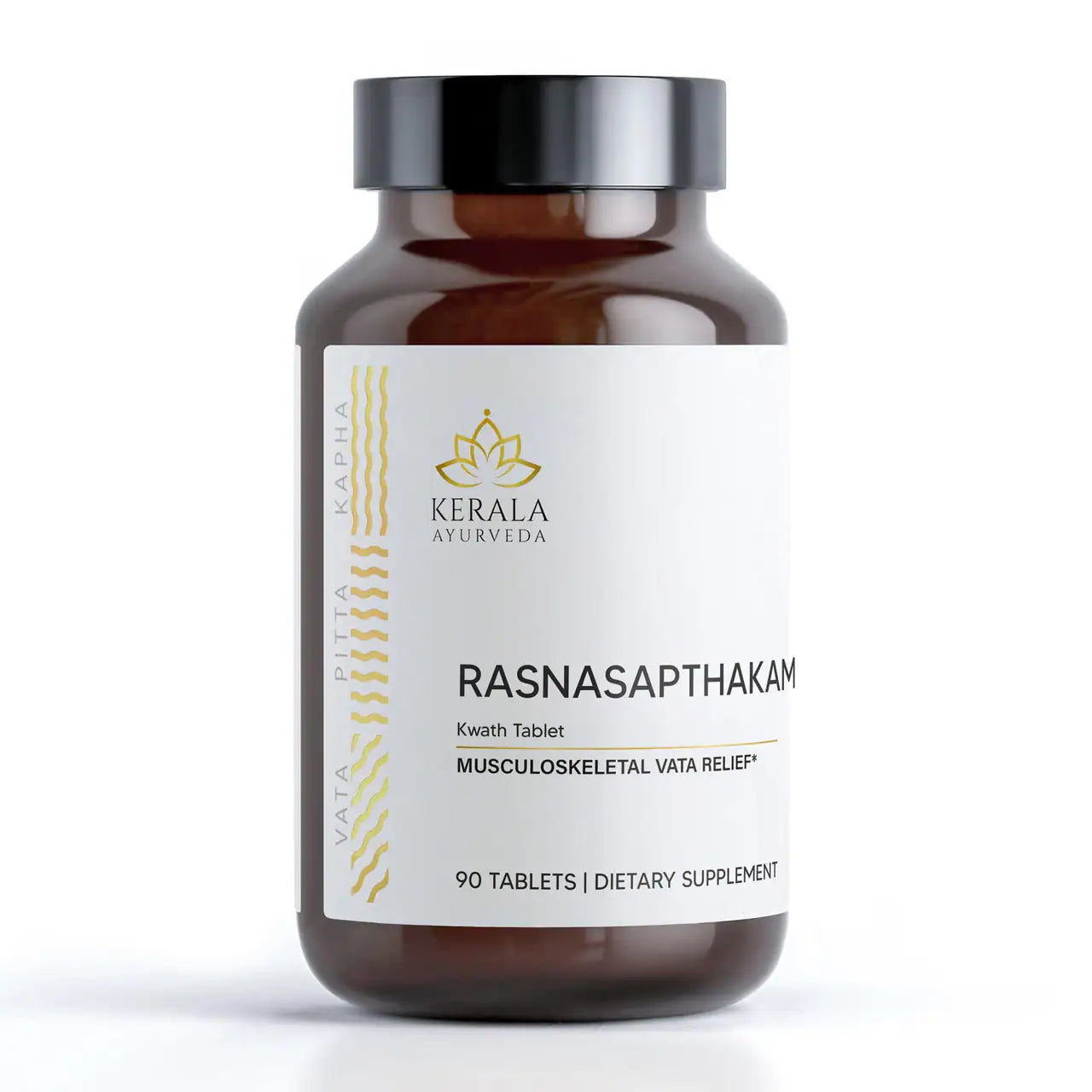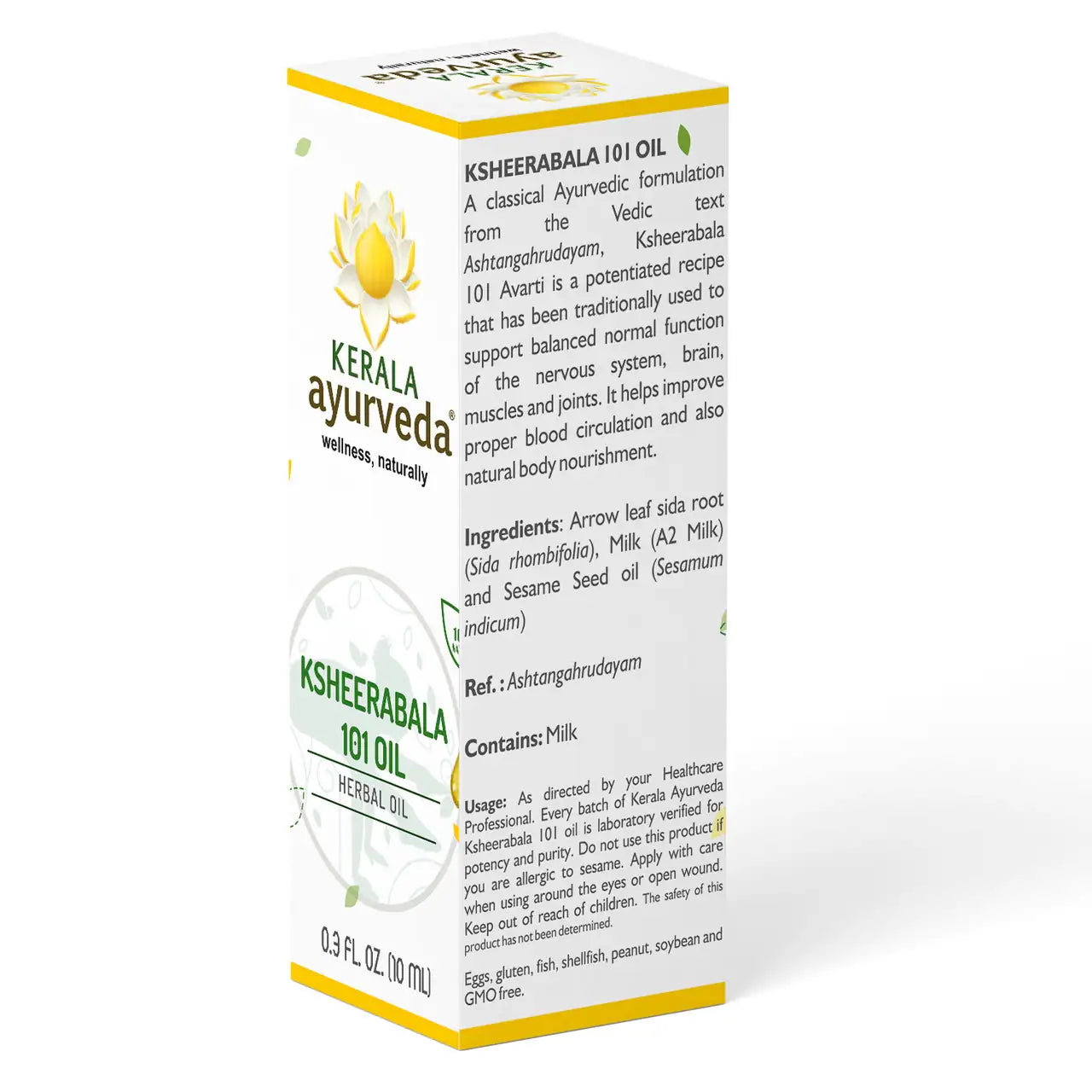Highlights
In the realm of Ayurveda, the heart transcends its role as a mere vital organ, emerging instead as a dynamic energy center and emotional compass. Achieving cardiovascular health entails skillfully intertwining dietary wisdom, adopting healthy lifestyle habits, and making mindful choices. Within this blog, we embark on an exploration of Ayurveda's holistic approach to finding heart health.
Ayurveda’s Perspective on the Heart
In the holistic framework of Ayurveda, the heart transcends its conventional role as a mere pump circulating blood throughout the body. Rather, it is revered as a focal point where the physical, emotional, and spiritual dimensions of your being converge.
Sadhaka Pitta and Emotional Balance
According to Ayurvedic philosophy, the heart is a complex nexus intimately linked to the mind. It is considered the abode of Sadhaka Pitta, a specialized subtype of Pitta Dosha, which governs emotional balance and clarity of thought. The heart is acknowledged as the orchestrator of your emotional symphony, influencing the rhythm and flow of your feelings.
When Sadhaka Pitta is balanced, it contributes to a healthy emotional state, positive thinking, and effective decision-making. However, an imbalance in Sadhaka Pitta can lead to emotional disturbances, such as anxiety, anger, or sadness. Supporting emotional equilibrium is important to heart health as doing so can help reduce the risk of stress-related cardiovascular health issues.
This holistic perspective encourages a comprehensive approach to heart health that incorporates not only physical care but also the cultivation of emotional and spiritual harmony, recognizing the inseparable unity of the heart, mind, and soul.
To keep Sadhaka Pitta in balance, Ayurveda recommends practices such as meditation, yoga, and a Sattvic (pure and wholesome) lifestyle as well as an appropriate diet.

Ayurvedic Diet for Heart Health
Ayurveda underscores the significant role of diet in preserving heart health, acknowledging that our food choices directly impact the delicate equilibrium of the Doshas, with a particular focus on Pitta, which is closely associated with heart health. While Ayurvedic dietary guidance is personalized based on individual constitutions and imbalances, the following are foods frequently suggested to balance Pitta and enhance overall heart health:
- Fruits: Sweet and juicy fruits like ripe mangoes, pomegranates, sweet berries, and melons are beneficial. These fruits are hydrating and full of antioxidants.
- Vegetables: Leafy green vegetables, such as spinach and kale, along with cooling vegetables like cucumbers and zucchini, are recommended. Bitter vegetables like bitter melon may also be included for their detoxifying properties. Garlic is praised in Ayurveda for its cardiovascular health benefits as it is believed to support healthy cholesterol levels and the reduction of high blood pressure.
- Whole Grains: Nutrient-rich whole grains like basmati rice, quinoa, and barley are preferred. These grains provide sustained energy and are easier to digest.
- Healthy Fats: Ghee (clarified butter), cold-pressed oils (like olive oil), and avocados are sources of healthy fats that support cardiovascular health.
- Legumes: Lentils, mung beans, and chickpeas are considered easy-to-digest protein sources that can be included in a heart-healthy diet.
- Nuts and Seeds: Almonds, walnuts, flaxseeds, and chia seeds are rich in omega-3 fatty acids and other nutrients beneficial for cardiovascular health.
- Herbs and Spices: Heart-friendly spices include cumin, coriander, cardamom, saffron, and fennel.
- Water: Proper hydration is essential to heart health with a suggested amount of 6-8 cups per day either warm or at room temperature.
When following an Ayurvedic diet, it is crucial to align meal times with the natural rhythms of the day. Meals should be consumed at appropriate times, emphasizing the significance of a well-timed breakfast, a hearty lunch when the digestive fire is strongest, and a lighter dinner in the evening.
Incorporating mindful eating principles, such as savoring each bite, paying attention to hunger and fullness cues, and fostering a peaceful eating environment, further supports overall well-being.
These guidelines, rooted in Ayurvedic wisdom, contribute to improved digestion and a harmonious and balanced approach to nourishing the body and heart.

Heart Healthy Ayurvedic Lifestyle Practices
Dosha Tailored Exercise For Heart Health
Ayurveda encourages a mindful and sustainable approach to physical activity by customizing exercise routines according to individual constitutions.
For individuals with a predominant Kapha Dosha, Ayurveda recommends exercises that help balance the inherent qualities of heaviness, slowness, and lethargy. The key is to engage in activities that increase energy levels and are invigorating and stimulating. Heart-healthy exercises tailored for Kapha Dosha include brisk walking, dancing, hiking, pilates, and interval training by combining a variety of exercises.
Individuals with a predominant Vata Dosha should strive to balance the qualities of mobility, lightness, and variability. Grounding and stabilizing activities that promote circulation and warmth are best for this Dosha. Heart-healthy exercises tailored for Vata Dosha include gentle cardiovascular workouts, swimming, cycling, gardening, and strength training.
Ayurveda recommends exercises that help balance the qualities of intensity, heat, and competitiveness for Pitta Dosha dominant individuals. The focus is on activities that provide a sense of challenge without overheating the body or being too competitive. Heart-healthy exercises tailored for Pitta Dosha include team sports such as tennis, nature hiking, swimming, weight training, and cycling.
Yoga offers a versatile practice for all Doshas offering a tailorable blend of physical postures, breath control, and meditation. It not only supports cardiovascular health but also addresses the holistic well-being of the individual by promoting mental clarity, emotional balance, and spiritual awareness.
Stress Management for a Healthy Heart
When you acknowledge the link between emotional wellbeing and cardiovascular health, effectively managing stress is crucial for sustaining a healthy heart. Ayurveda suggests a holistic approach that encompasses practices such as meditation and deep breathing exercises (Pranayama). These practices are instrumental in calming the mind, reducing stress hormones, and promoting overall emotional balance.
Stress can also be minimized by practicing a Sattvic (pure and wholesome) lifestyle which includes the cultivation of positive habits, establishing regular routines, and fostering nourishing relationships.
Ayurvedic Herbs For Heart Health
Ayurvedic herbs offer a holistic approach that transcends mere symptom alleviation. Renowned herbs such as Arjuna, Pomegranate, and Ashwagandha have been cherished in Ayurveda for their potential to support heart health.
Arjuna has been revered in Ayurveda for centuries as a potent remedy for cardiovascular well-being. The herb is named after Arjuna, a revered hero from the Indian epic Mahabharata, known for his exceptional strength and courage. The association with this legendary figure underscores the perceived strength and protective qualities that Arjuna is believed to offer the heart. Studies suggest that Arjuna may have positive effects on cardiovascular health, including its potential to lower blood pressure, reduce cholesterol levels, and improve overall cardiac function.
Pomegranate, known for its ruby-red seeds, is packed with antioxidants believed to contribute to cardiovascular well-being by combating oxidative stress and inflammation. Studies suggest that regular consumption of pomegranate may help lower blood pressure, reduce cholesterol levels, and enhance overall heart function. The fruit's high content of polyphenols is thought to have protective effects on the lining of blood vessels, fostering improved blood flow and reducing the risk of atherosclerosis, the gradual buildup of plaque inside the arteries.
Ashwagandha, known scientifically as Withania somnifera, has adaptogenic properties that help the body adapt to stressors and promote a sense of balance. Chronic stress is a known risk factor for cardiovascular health issues, and Ashwagandha's stress-relieving effects may indirectly benefit heart health. Studies suggest that Ashwagandha may help lower cortisol levels, reduce anxiety, and improve overall mental well-being. Additionally, the herb has been linked to potential benefits such as lowering blood pressure and improving lipid profiles, contributing to a more comprehensive approach to cardiovascular health and wellness.
The Ayurvedic approach to heart health offers a comprehensive and holistic pathway to well-being, addressing the intricacies of both the physical and emotional aspects of the heart. By incorporating these holistic principles into our daily lives, we embark on a transformative journey towards not only a robust and resilient heart but a harmonious and balanced approach to overall well-being.







